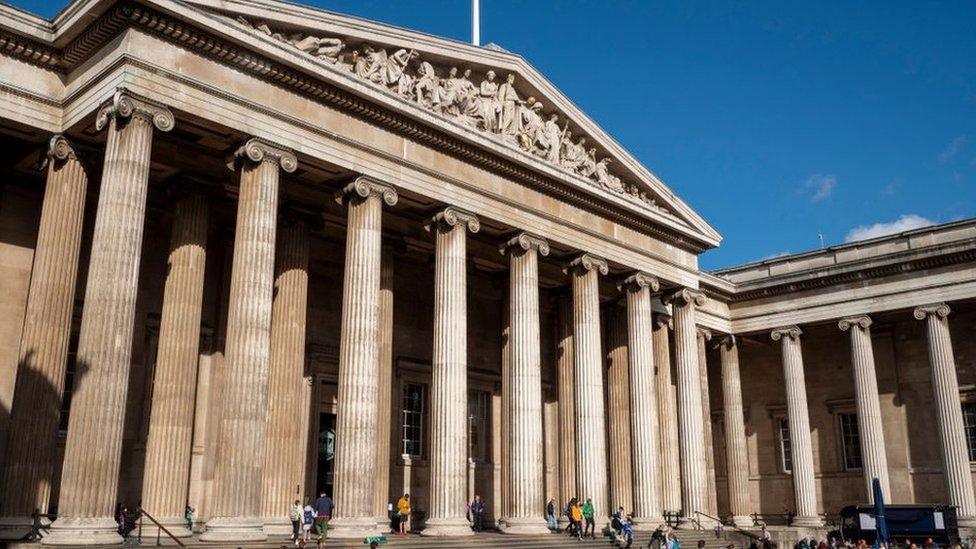British Museum treasures safe, MP insists after thefts
- Published
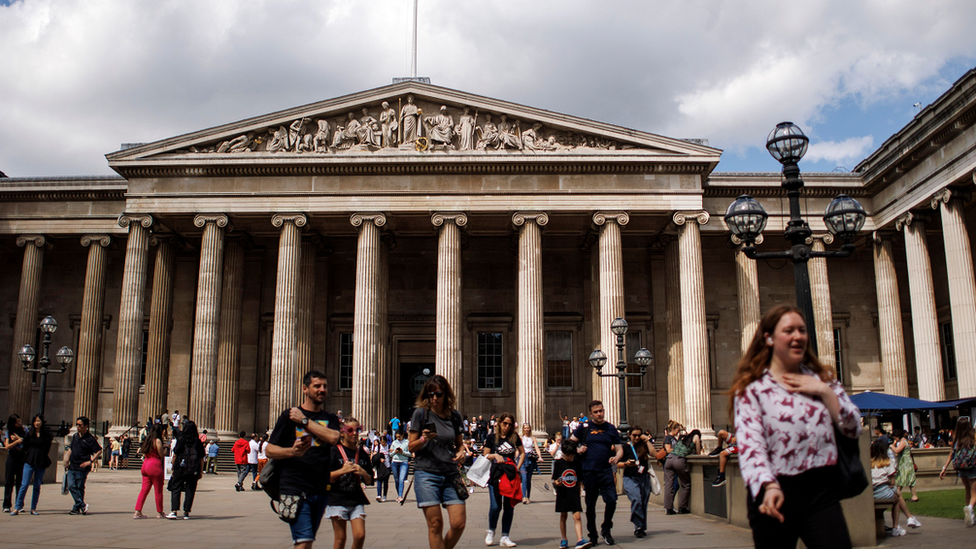
The British Museum is one of the most popular visitor attractions in the UK
Greek claims that the British Museum is not safe after a series of thefts are "blatant opportunism", the chair of its cross-party group has said.
MP Tim Loughton said it was "incredibly rare" for items to go missing and the institution was taking it "seriously".
Archaeologist Despoina Koutsoumba said the museum could no longer claim Greek heritage was being protected.
Greece has long campaigned for the return of the Parthenon sculptures also known as the Elgin Marbles.
The institution said a staff member had been sacked after treasures were reported "missing, damaged or stolen".
Legal action is being taken by the museum against the unnamed member of staff.
The Economic Crime Command of the Metropolitan Police is investigating but no arrests have been made. The museum has also started an independent review of security.
Items including gold, jewellery and semi-precious gemstones are among those missing, though the museum has not specified which items in particular.
It is now believed that more than 1,500 objects were stolen, damaged and destroyed, in a crisis that is threatening the institution's reputation.
According to the PA news agency, the missing items are believed to have been taken over a "significant" period of time.
Mr Loughton, who chairs the British Museum All-Party Parliamentary Group, told BBC Radio 4's Today programme that news of items going missing from the collection in London was "damaging", but so too were claims the museum was not safe.
"What is particularly damaging is [the] blatant opportunism of the Greeks and others saying, 'Oh no, the British Museum is not safe'," he said.
The Tory MP, who has been in touch with the museum, said it had undertaken a "tremendous amount of work cataloguing" items in its collection and had the most online documentation in the world.
"People want to know the extent of the objects which have disappeared, what investigations took place at the time when various reports came in and what is being done now because otherwise [it's] getting out of hand," he added.
His comments follow renewed calls by officials in Greece for the return of the Parthenon sculptures - among the most high-profile contested items in the museum's collection.
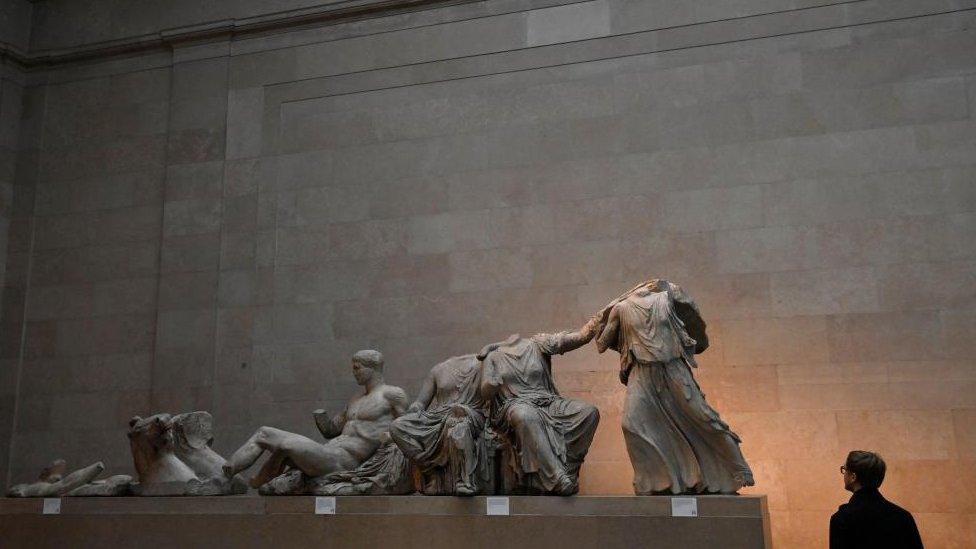
Parthenon Sculptures, which are originally from the temple of Athena in Greece, were brought to Britain by Lord Elgin
The sculptures, also known as the Elgin Marbles, once adorned the Parthenon atop the Acropolis in Athens and have been on display in the museum since the 19th Century.
Greece has long claimed they were illegally acquired during a period of foreign occupation.
Ms Koutsoumba, director of the Association of Greek Archaeologists, told BBC Radio 4's World Tonight programme that it was "obvious" the sculptures would be well protected in Greece, not in the museum.
"We are very much worried how many Greek items were [among] these stolen items and we want to tell the British Museum that they cannot anymore say that Greek cultural heritage is more protected in the British Museum," she said.
"They have to return the Parthenon marbles back because they are not safe in London."
She added that the potential security issues the thefts have exposed were a "problem for all museums in the world".
"All museums in the world have to learn what happened in the British Museum so that if we have problems in our security protocols [we can] change it," she said.
The BBC has also seen correspondence showing that an art dealer alerted the museum to the alleged stolen items in 2021.
Ittai Gradel alleged in February 2021 he had seen items online belonging to the museum, according to the correspondence.
Deputy director Jonathan Williams responded in July 2021 to Mr Gradel, saying "there was no suggestion of any wrongdoing".
The museum's independent review is being led by former museum trustee Sir Nigel Boardman and Lucy D'Orsi, Chief Constable of British Transport Police.
Related topics
- Published22 August 2023
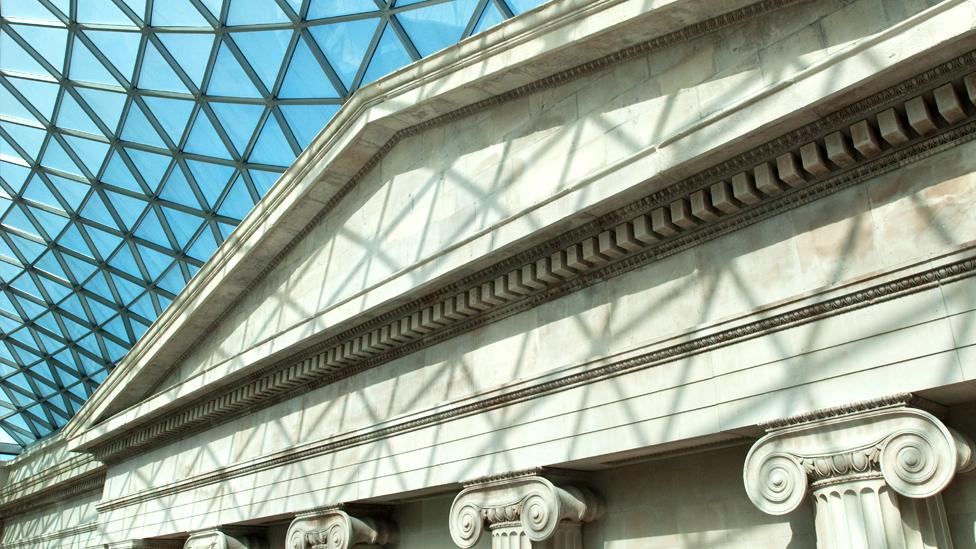
- Published26 August 2023
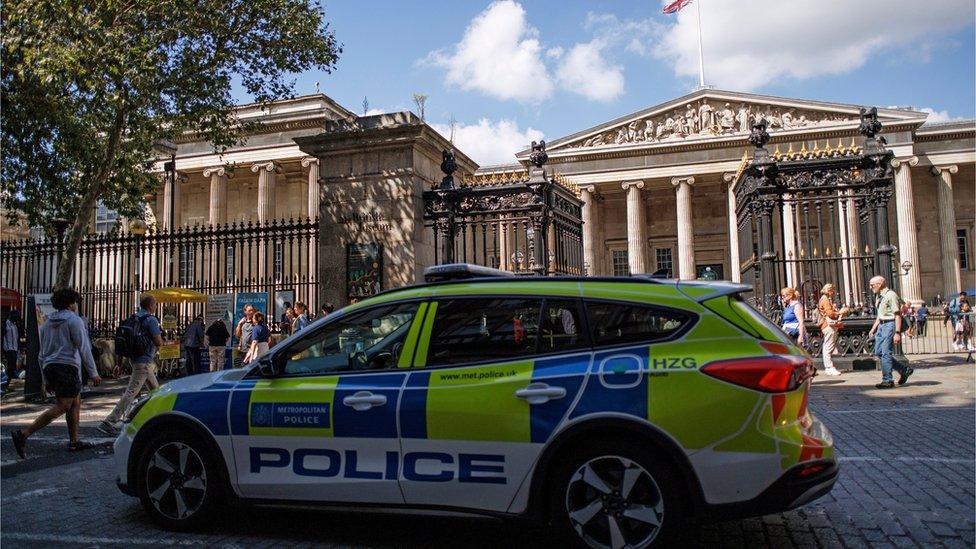
- Published20 August 2023
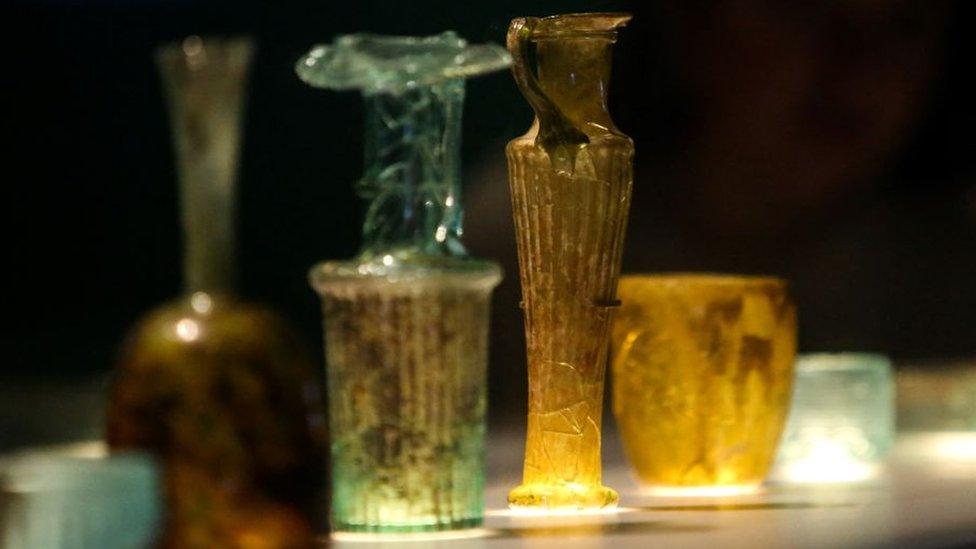
- Published16 August 2023
